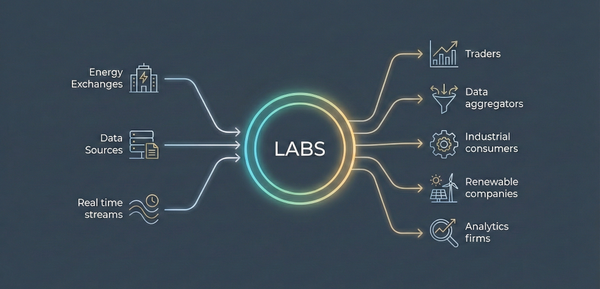Applied artificial intelligence (AI) is revolutionizing the way businesses operate and compete across nearly all industries. The ability of AI to enhance operational efficiencies, automate mundane tasks, and offer deeper insights into customer behavior is undeniable. By leveraging state-of-the-art technologies such as natural language processing (NLP), machine learning (ML), deep learning (DL), and more, organizations can drive higher ROI on their investment in AI solutions. In this pillar page, we’ll discuss how organizations can use applied AI to improve their operations, optimize customer experiences, provide access to real-time data analytics, and ultimately gain a competitive advantage in their respective markets.
First off, it’s important to note that successful AI implementations start with a detailed understanding of the problem at hand. To ensure the maximum efficacy of an organization’s AI initiative, they must have a clear goal in mind along with an action plan detailing how the different components will work together to achieve that goal. With that said, there are several areas where applied AI is providing groundbreaking insights for organizations today:
- Automation & Process Optimization – By leveraging NLP and ML algorithms, businesses are able to automate or optimize various workplace processes such as supply chain management or HR recruitment. This not only enables increased efficiency but also frees up resources for other value-added activities;
- Customer Insights & Targeting – Using DL models, companies are able to gain deeper insight into their customers’ behaviors and preferences so they can better target them with relevant products or services. Additionally, this data can be leveraged to inform marketing campaigns and personalize content delivery;
- Real-Time Data Analytics – By integrating streaming data sources into sophisticated predictive analytics models such as survival analysis or logistic regression models, businesses can gain an edge over competitors by having faster access to actionable insights based on emerging trends;
- Predictive Maintenance – By combining historical operational data with machine vision technologies such as computer vision or facial recognition algorithms, organizations can predict maintenance needs before they become issues so proactive measures can be taken accordingly;
- Augmented Reality & Virtual Assistants – Through the integration of AR/VR technologies with NLP technologies such as speech recognition or image classification algorithms, companies are able to create interactive virtual experiences for customers which deliver enhanced information about products or services at any given point in time;
Ultimately every organization must evaluate its situation independently and tailor their approach toward applied artificial intelligence appropriately. From creating automated workflows for mundane tasks to enriching customer experiences through predictive analytics—the possibilities for using applied AI are nearly limitless!
AI Consulting
AI consulting is a service that helps organizations develop, deploy, and maintain AI applications. These services are provided by experienced professionals who specialize in the creation of AI-based systems and software platforms. AI consultants leverage their expertise to help organizations address complex problems, optimize operations, and unlock new capabilities through the use of advanced technologies such as machine learning (ML), natural language processing (NLP), deep learning (DL), and more. By leveraging these tools, AI consultants can provide powerful insights and actionable recommendations to help businesses take advantage of the opportunities presented by AI.
MLOps
MLOps is an approach to managing and deploying machine learning (ML) models in a production environment by leveraging continuous integration, continuous delivery, and automated testing. MLOps helps bridge the gap between data scientists and software engineers, streamlining the process of taking a model from development to deployment. MLOps services span from DevOps support for ML pipelines, automated model versioning, feature engineering, feature store creation, and genealogy tracking of models to regulatory compliance governance. With this service, organizations can quickly move from prototype to production without sacrificing the accuracy or trustworthiness of their models.
ML Engineer vs. Data Scientist
The distinction between ML Engineers vs. Data Scientists is largely based on the role they play in the development process. ML Engineers are responsible for the practical implementation of data science models and algorithms, while Data Scientists focus on understanding and interpreting data to identify statistical trends. ML Engineers take a model or algorithm that a Data Scientist has developed and bring it to life using software, hardware, and infrastructure that can be deployed in production. They must have an understanding of coding languages, cloud infrastructure, databases, engineering principles, and other systems to ensure that models are both accurate and efficient. Data Scientists typically create models with offline datasets and then hand them off to an ML Engineer who will turn them into working applications.
Data Engineer vs. Data Scientist
Data Engineers and Data Scientists often work together on data projects, with the former playing a more technical role while the latter provides analytic insights. Data Engineers are responsible for designing and building the architecture that supports data storage and analysis, including data warehouses and databases. They are typically well-versed in software programming languages such as Python and Java, as well as other computing technologies such as Apache Hadoop. Data Scientists use their understanding of mathematics, statistics, machine learning, and other techniques to analyze data sets, identify patterns and draw conclusions from that information. They need to be able to interpret complex concepts into business insights that can inform decision-making.
Are you interested in working with us? Contact us today, and let us hear your project goals. We’re excited to start an amazing journey with you!




